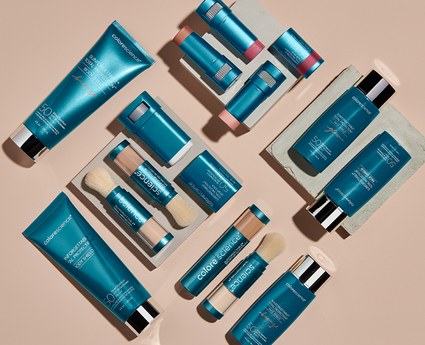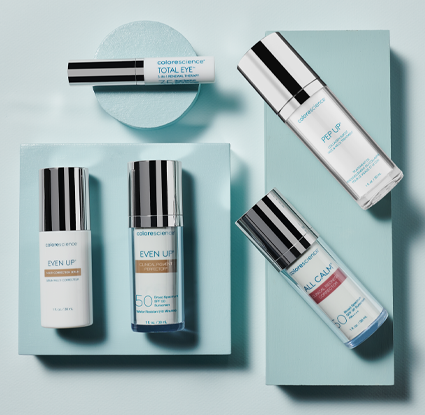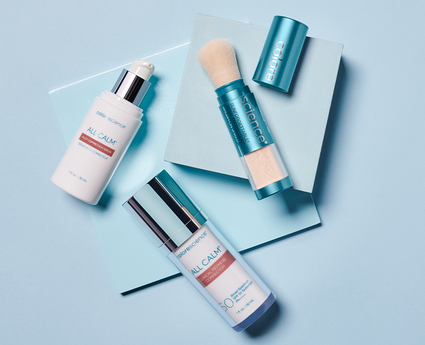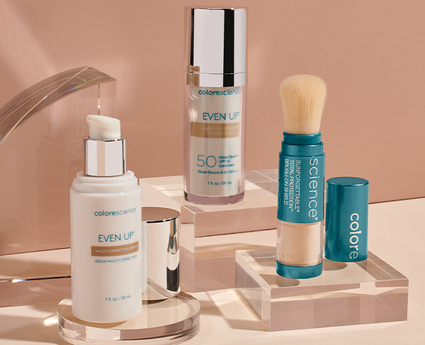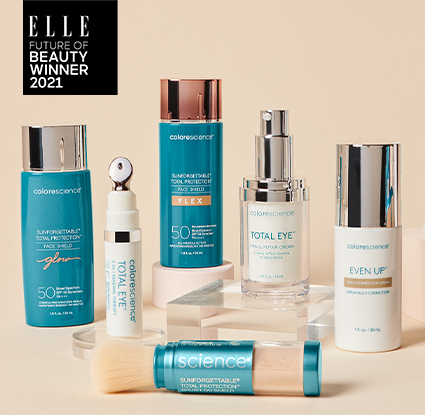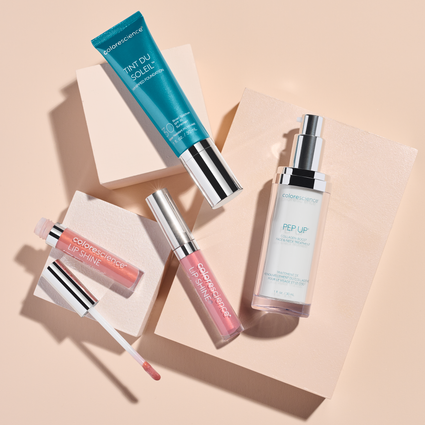The Best Vitamins for Healthy Skin
Supplements and vitamins are a huge part of the beauty market – you’ve probably been targeted on social media for those “millennial vitamins” at some point. As with anything on Instagram or other platforms, you should be wary: these products aren’t all created equally no matter how sleek their advertising.
This explosion of vitamins claiming to help with different aesthetic concerns and skin conditions means there are a lot of claims for you to parse through. So, if you’re curious about vitamins or other nutritional supplements, you’re going to have to get out that shovel out and do a little digging to avoid complete duds in the vitamin department – and even then, there are no guarantees.
With that said, there are vitamins and dietary changes you can make that may help you based on clinical trials and anecdotal evidence of what real people are reporting. Botox and cosmetic surgery are options for your skin concerns, of course, but vitamins are a more natural, less invasive route for improving your skin.
As always, consult a doctor before adding any supplements to your diet, especially if you’re on any kind of medicine regimen.
Read on below for more information on the best vitamins for skin and which vitamins that may help fix or alleviate certain skin conditions. Or, navigate directly to the section that’s relevant to you.
- What to Look for When You’re Buying Vitamins
- The Best Vitamins for Specific Skin Problems
- Vitamins in Conjunction with Sun Protection
- Protect and Help Your Skin
What to Look for When You’re Buying Vitamins
Before we dive into the nitty gritty of vitamins, it’s important to know a little bit about how the supplement industry works.
You walk into a grocery store and head to the vitamin aisle. There, hundreds of bottles glint under the fluorescent light. “Okay, where do I start?” you might be asking yourself.
Besides knowing what you’re looking for before you even step foot in the store, your best bet when you’re browsing vitamins is to first read the fine print – even if that means whipping out your reading glasses.
Look to see if your chosen supplement has been independently tested by a regulatory agency, if so, that’s a good sign.
There are four regulatory bodies that test supplements but don’t confuse that with FDA testing which evaluates therapeutic value and efficacy. Generally, the labs that test vitamins and supplements are confirming that the ingredients in the bottle are actually there in the amount claimed on the label.
The four main organizations you’ll see on supplements and vitamins are listed below:
- Consumer Lab
- NSF International
- U.S. Pharmacopeia (USP)
- UL
How regulatory agencies for supplements work: These independent organizations take samples of a particular vitamin or supplement from a store. Then, it undergoes testing for dangerous contaminants like arsenic or bacteria – as well as for the main, advertised ingredients. Once the components of the vitamin or supplement are confirmed, it gets a seal.
Of course, having a seal doesn’t guarantee therapeutic results, but it’s a good indicator of quality regardless.
We have outlined a few more features below to look out for when you’re shopping for vitamins and nutritional supplements on your journey to internal health and getting that external glow.
Clinical Trial
When you’re buying a new pair of running shoes online, you generally check out reviews and do a bit of research before committing. You probably also compare and shop around before clicking “Purchase”. Why wouldn’t you do the same thing for a product that’s actually going in your body, not just on it? Exactly.
Research the vitamin you want to buy and the kinds of clinical trials used to evaluate its effects. It’s also a good idea to find out whether or not a company does batch tests on their products.
Formulas and Dose
Why do some vitamins say to take two pills a day while others are as high as six? It all comes down to dosage. Depending on the vitamin, it might be better to go for a lower dose that’s taken several times during the day so it’s more easily and efficiently absorbed by the body.
Additives and Preservatives
Watch out for supplements that have added colorings or sugars – you don’t want any unnecessary chemicals.
Cost
The cost of a supplement doesn’t reflect the quality necessarily. Again, this comes down to consumer research, it’s important to look into the supplement company, check reviews, and then decide whether or not you’re going to give a company your money. Above all, don’t trust a company whose claims seem too good to be true. Wouldn’t it be nice if a pill could whiten your teeth, thicken your hair, clear a breakout and pick an Instagram filter for you? Well, unfortunately technology hasn’t caught on yet but we can dream. In the meantime, let’s look at the vitamins that have been showing promise in the world of beauty.
The Best Vitamins for Specific Skin Problems
With all of the caveats above in mind and your doctor’s go-ahead, it’s time to look into vitamins that have promising evidence of improving your skin. Reduce the appearance of scars like acne marks, brighten your skin tone, or diminish the severity of breakouts – it’s possible, but you might have to do a little trial-and-error to find out what works for your specific body chemistry and skin.
We’ve gathered some of the most popular vitamins and nutritional supplements to assist you on your journey toward a healthy complexion.
Acne
Blemishes and hyperpigmentation are annoying issues that seem to (literally) pop up at the absolute worst time. A chin zit before a picture-heavy bachelorette party, an acne scar that suddenly darkens before a work event, a seemingly innocent bump that turns into a huge breakout – we’ve all been there.
Acne is stubborn skin problem that plagues millions from young teens to adults. Even babies can get it! The direct cause of pimples is sometimes unknown but it’s usually a combination of genetic, hormonal, and environmental factors. Vitamins won’t necessarily clear your skin overnight but over time, adding certain vitamins to your daily regimen may prevent acne and reduce the severity of breakouts. They can take quite a bit of time to build up in your system and it can take months until you see a difference – but they’re worth trying before you go to a harsher treatment like Acutane.
Let’s dive in!
Vitamin A: In most skincare products, retinol, a vitamin A derivative, is used. It can help maintain and build new skin so you’ll have new layers of skin sooner – aka, faster recovery from a bad breakout. Retinol and vitamin A also help soothe existing breakouts by unclogging pores. But be careful, it increases your skin’s sensitivity to the sun, so don’t skimp on the SPF when using retinoids.
Get more vitamin A through your diet by focusing on eating orange fruits and vegetables like apricots, sweet potatoes, and carrots in addition to dark, leafy greens like spinach.
Zinc: This vitamin may reduce the oil production in the skin and fights off bacterial infections associated with the spread of acne. Red bumps got you down? Zinc soothes and calms existing inflammation. You can take zinc orally or use it topically.
Foods high in zinc include meat, shellfish, legumes, seeds, nuts, eggs, and dairy.
Vitamin C: This powerhouse vitamin does a ton of good things for your body besides reduce your risk for scurvy if you’re a pirate. In regard to your skin, vitamin C aids in collagen synthesis – a protein that maintains your skin’s elasticity.

In addition to keeping your skin soft and flexible, vitamin C has anti-inflammatory properties which can settle skin issues like acne. When it’s placed directly on the skin, it encourages collagen synthesis at the area of application and brightens skin ravaged by a breakout. You can find a ton of vitamin-C rich serums on the market as well as pills.
B Vitamins: B2 (riboflavin), B3 (niacin) and B6 (pyridoxine) are specific B vitamins crucial for both your body and skin. In your body, they help regulate hormones and when it comes to your skin, they help keep your epidermal layer supple and less dry. You can take them in supplement form or apply B-vitamin infused lotions directly to your skin. We give B vitamins an A.
Vitamin D: You might already know that vitamin D helps keep your bones strong but did you know it’s also incredibly important for your skin? One study found that participants who had acne also had a vitamin D deficiency. So, get your vitamin D levels checked, if they’re low, that might be part of the reason why you keep seeing breakouts.
Rosacea
Another inflammatory condition similar to acne is rosacea which affects 14 million people in the U.S. alone. There are some dietary additions that may help calm the redness and irritation associated with the disorder, however. Keep reading for the most promising supplements for solving your rosacea issues.
Borage Oil: This is a plant-derived supplement that fights inflammation. It’s full of essential fatty acids which play an important role in membrane and cell structure health. You can use borage oil in supplement form or apply it directly to the skin.
Probiotics: Good bacteria in your gut can reflect on your skin – and your health as a whole. While your skin and your intestines seem like distant systems – they’re a lot more interconnected than you think. The introduction of more good bacteria can help balance out bad bacteria that might proliferate and cause rosacea flares.
Chamomile oil: Just like chamomile tea can make you feel sleepy and less anxious, it can also help calm your skin. The flowers of the plant have azulene which offers anti-inflammatory properties. To use chamomile in your routine, you can make a compress with (cooled-down) tea bags or find creams with chamomile.
Polyphenols: These plant-based antioxidants brighten your skin and reduce rosacea flares. Look for botanical-rich creams which will have a high amount of polyphenol content.
Other tips: use sunscreen everyday as the sun is often a trigger for a rosacea flare and use natural products that are unlikely to contain skin irritants.
Eczema
Over 30 million Americans suffer from eczema, a disease that presents in the form of an itchy rash that can make the skin thick or scaly. There are a few dietary additions and supplements you can add that have been shown to keep these uncomfortable symptoms at bay.
Fish oil: A comprehensive summary of research found that supplements of fish oil could help quell inflammatory problems thanks to high content of omega-3 fatty acids.
Evening Primrose Oil and Borage Oil: EPO and borage oil both have essential fatty acids that act as anti-inflammatory agents. EPO was also shown to reduce itchiness.
Bromelain: This is a pineapple enzyme that reduces inflammation which you can buy in supplement form. Who knew pineapples could be so helpful?
Licorice: There’s evidence that licorice root may help improve redness, swelling, and itching.
Fine Lines
One day you’re young, soaking up the sun, not a care in the world. The next day, you look in the mirror and–oh no, what’s that? Some crow’s feet are making themselves at home around your eyes. We all age, it’s an inevitable process.
And besides being a dedicated sunscreen user (we mean every single day, not just on sunny days), there’s not a lot you can do to fight your own genetics. Although fillers and Botox can give you a brief look at what it’d be like to have the skin of your youth, that fresh-faced look fades when the procedures wear off.
Vitamins won’t give you your youth back but there’s some evidence they can provide some benefits that might shave off a couple of years here and there when you look in the mirror.
Retinoids: It’s very rare to find an FDA-approved wrinkle treatment but Retinol is one of them. Retinol is a derivative of Vitamin A that slows collagen breakdown, keeping your skin supple and elastic.
Selenium: This nutrient protects the body from damage caused by the dermatological demons known as free radicals. Selenium keeps your tissues elastic and slows down oxidative processes in the body and skin.
To get selenium in your diet, increase your consumption of seafood, meats, eggs, nuts and seed. Brazil nuts are particularly high in this nutrient.
Vitamin K: Kale is the answer if you want to be wrinkle-free. Okay, not quite. But it is full of vitamin K which maintains your skin’s integrity and thickness. Some have reported that it reduced the appearance of dark circles and bruising, as well.
Vitamin E: Sun protection, free-radical protection – vitamin E is a fantastic anti-oxidant for these reasons. Get it by consuming sunflower oil, soybean oil or loading up on nuts and seeds. Or, take capsules orally.
Dry skin
Dry skin is annoying for a multitude of reasons. If you’re putting on your makeup, it tends to collect in the dryer sections of your face. Especially if you’re using a liquid foundation, the moisture gets pulled into dry patches which can give you a flaky, uneven look.
Some people only have dry skin issues during winter. This season tends to wreak havoc on skin due to dry, cold, and windy conditions that can leave your skin drier than the Sahara. Besides lotion, you can fight against dry skin with a combination of diet and supplements. And of course, by drinking adequate amounts of water.
Essential Fatty Acids: These polyunsaturated fats help keep your skin supple and properly hydrated. Flaxseeds, walnuts, canola oil, and wheat germ are rich in this nutrient.
Fish Oil: When you’re browsing for a fish oil supplement in the grocery store, EPA and DHA omega-3 fats are what you want to look for – those are the specific compounds that rehydrate dry skin. For plant-based plant supplement options, omegas are listed as ALA. Currant seeds or sunflower seeds are good natural sources of ALA. And, not surprisingly, fatty fish like salmon, herring, and tuna contain the most omega-3 fatty acids.
It might seem obvious but it’s important enough to note that if you have dry skin issues, take practical steps to hydrate your skin like drinking enough water throughout the day and applying lotion after showering to seal in moisture. As for food, eat watermelon, cucumber and celery – these foods slowly hydrate the skin as it’s digested.

Vitamins for General Skin Health
Maybe you don’t have a specific skin issue but you’d like to brighten your complexion or simply get your skin to be glowy, dewy perfection. For that, we recommend a few general vitamins
Choline: Eggs, peanut, and milk are full of this vitamin but the body also makes it on its own. This vitamin helps support healthy brain function and assists in maintaining and regulating skin cell membranes.
Folic Acid: Topical application of folic acid along with creatine (an amino acid) helped to firm and thicken skin in a study. It increased collagen production at the site of application.
Biotin: This water-soluble B-vitamin is involved in the regulation and health of your hair, skin, and nails. If you’re biotin-deficient, you might see hair loss or a rashes but generally, most people get enough of their required daily value through diet. There has been some clinical evidence that adding biotin does help protect against hair loss.
Use Sun Protection in Conjunction with Vitamins for Your Best Skin

If you want to improve your skin with vitamins and extra nutrients – it makes sense to also spend time on preventative measures to protect your skin in the first place. What does that mean, exactly? Use sunscreen! It’s important to always use sun protection, even on cloudy days when you can’t see the sun. UV rays penetrate the clouds and the intensity of rays can be higher because they bounce between lower cloud cover and the ground – therefore you get more exposure. Using sunscreen makeup powder is a great way to practically wear sun protection while also using it to set your makeup.

The Total Protection Face Shield with SPF 50 is a great start. Using EnviroScreen Technology, this lightweight mineral formula fights off harmful rays. It’s also water and sweat resistant for up to 40 minutes so you don’t have to constantly stop and reapply on your morning jog or when you’re splashing around at the pool.
The Total Protection Face Shield blends into an invisible layer onto your skin, regardless of your skin tone and provides protection from UV rays, pollution, blue light, and infrared radiation.
There’s also makeup that has sunscreen incorporated directly into the makeup itself: the Sunforgettable Total Protection Brush-On Shield with SPF 50. It comes in four tints in powder form.
You can use it by itself or on top of makeup. It’s water and sweat resistant for up to 80 minutes with UVA and UVB protection. It will last for 90 days with normal use.
Protect and Help Your Skin
Vitamins and nutritional supplements may be a good choice if you’re looking for something to help with your skin problems. But don’t mistake them for a cure-all. Your best bet for healthy skin is a well-rounded diet of colorful fruits and vegetables, adequate water intake, sleep, natural makeup free of known irritants and using protective products like sunscreen.
Vitamins aren’t the be all and end all of skin health but they can, in some cases, have a beneficial effect. Do your due diligence when it comes to researching these products. Before starting an supplement regimen, get approval from a doctor and listen to their dosage instructions. Look for seals from independent organizations, read reviews, and investigate supplement companies thoroughly. With these tips in mind, you’ll be on your way to healthier skin. Your glow-up starts from the inside, out.

